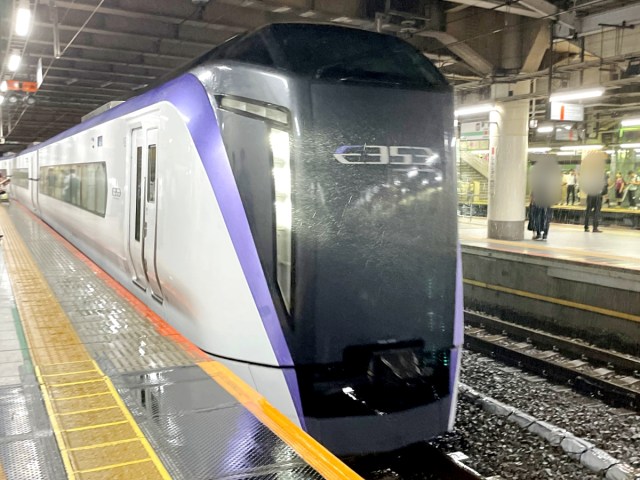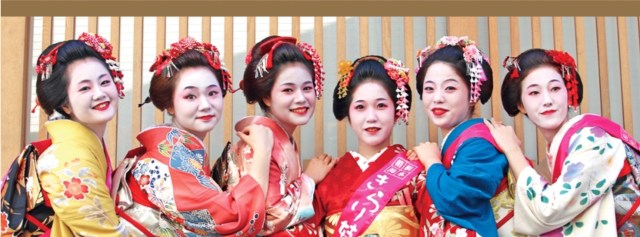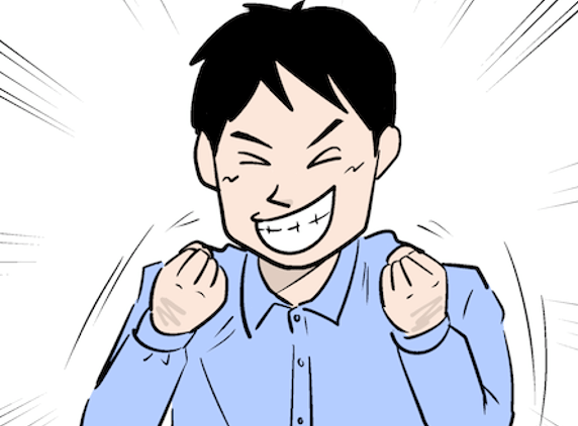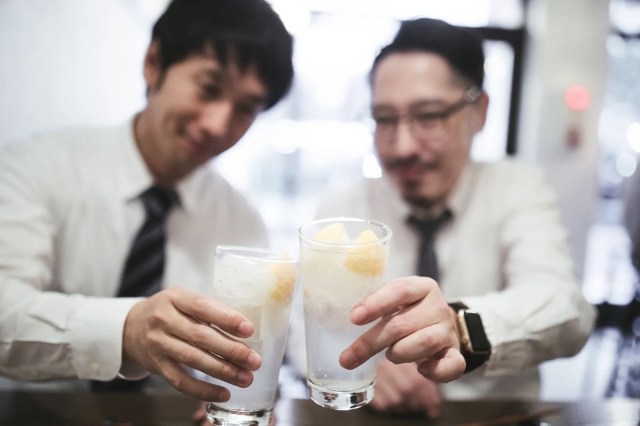Our reporter shares why taking a limited-express train home after a weeknight drinking party made all the difference in the world for him.
Nomikai
From love hotels in summer to the history of fireworks, these juicy bits of information amaze even Japanese people.
We all know marriage and live-in-partnerships have a lot going for them. From constant companionship to support when you’re stressed with work or family problems, the idea of cohabiting with that special someone is powerful enough to sweep even the most jaded singleton off their feet.
In Japan, where pre-marriage cohabitation is still considered somewhat taboo, married life is a serious commitment with traditional roles that involve self-sacrifice and obligation, not only to one’s partner but to their extended family. So what do the single men of Japan think about marriage versus the bachelor life? A recent survey reveals the moments men are glad they’ve never put a ring on it and the interesting reasons why.
April is upon us again, which means the start of a new school and work year in Japan. So perhaps it’s fitting that Fuji TV’s morning informational show Nonstop! recently aired a segment about new company employees. But its focus wasn’t on just any new recruits to the workplace…it was about monster recruits! Read on to find out what kinds of unthinkable behavior shocked netizens and made them lament the rude ways of the younger generation.
In Japan, husbands often hand over their pay packets to their wives, who are the chief financial controllers for the household. Husbands then receive a fraction of their pay in the form of a monthly allowance, which has to cover costs such as cell phone charges, lunches and all-important networking and relations-building nomikai, or work drinking parties.
According to a survey by Shinsei Bank, the average office worker receives an allowance of 39,600 yen (US$398) a month. But when the average cost for attending a drinking party is 2,860 yen ($28.75), and one lunch is an average of 510 yen ($5.13) a day, many workers are now choosing to skip out on after work drinks. What they don’t realise is that this attempt to save some yen is actually jeopardising their careers.






 The 10 most annoying things foreign tourists do on Japanese trains, according to locals
The 10 most annoying things foreign tourists do on Japanese trains, according to locals Osaka establishes first designated smoking area in Dotonbori canal district to fight “overtourism”
Osaka establishes first designated smoking area in Dotonbori canal district to fight “overtourism” Pretty pink coffins to sleep in now on sale in Japan, made by local Tokyo craftsmen【Photos】
Pretty pink coffins to sleep in now on sale in Japan, made by local Tokyo craftsmen【Photos】 Adorable Totoro acorn key holders come with a special guest hidden inside[Photos]
Adorable Totoro acorn key holders come with a special guest hidden inside[Photos] Skyscraper sized Pokémon cards to appear in Tokyo all year long in Tocho projection mapping event
Skyscraper sized Pokémon cards to appear in Tokyo all year long in Tocho projection mapping event Burning through cash just to throw things away tops list of headaches when moving house in Japan
Burning through cash just to throw things away tops list of headaches when moving house in Japan Four dirt-cheap but tasty places to grab lunch in Tokyo’s Shibuya shopping mecca
Four dirt-cheap but tasty places to grab lunch in Tokyo’s Shibuya shopping mecca We investigate Sendagaya Tunnel and get a message from beyond【Haunted Tokyo】
We investigate Sendagaya Tunnel and get a message from beyond【Haunted Tokyo】 A look back on 40 years of Japanese schools banning stuff
A look back on 40 years of Japanese schools banning stuff Haku is…Chihiro’s dead brother? Studio Ghibli fans blown away by Spirited Away theory
Haku is…Chihiro’s dead brother? Studio Ghibli fans blown away by Spirited Away theory Starbucks Japan releases new sakura goods and drinkware for cherry blossom season 2026
Starbucks Japan releases new sakura goods and drinkware for cherry blossom season 2026 Naruto and Converse team up for new line of shinobi sneakers[Photos]
Naruto and Converse team up for new line of shinobi sneakers[Photos] Is Sapporio’s Snow Festival awesome enough to be worth visiting even if you hate the snow? [Pics]
Is Sapporio’s Snow Festival awesome enough to be worth visiting even if you hate the snow? [Pics] Japan has trams that say “sorry” while they ride around town…but why?
Japan has trams that say “sorry” while they ride around town…but why? Sakura Totoro is here to get spring started early with adorable pouches and plushies
Sakura Totoro is here to get spring started early with adorable pouches and plushies Starbucks Japan unveils new sakura Frappuccino for cherry blossom season 2026
Starbucks Japan unveils new sakura Frappuccino for cherry blossom season 2026 Poop is in full bloom at the Unko Museums for cherry blossom season
Poop is in full bloom at the Unko Museums for cherry blossom season Now is the time to visit one of Tokyo’s best off-the-beaten-path plum blossom gardens
Now is the time to visit one of Tokyo’s best off-the-beaten-path plum blossom gardens Playing Switch 2 games with just one hand is possible thanks to Japanese peripheral maker
Playing Switch 2 games with just one hand is possible thanks to Japanese peripheral maker Japan’s newest Shinkansen has no seats…or passengers [Video]
Japan’s newest Shinkansen has no seats…or passengers [Video] Foreigners accounting for over 80 percent of off-course skiers needing rescue in Japan’s Hokkaido
Foreigners accounting for over 80 percent of off-course skiers needing rescue in Japan’s Hokkaido Super-salty pizza sends six kids to the hospital in Japan, linguistics blamed
Super-salty pizza sends six kids to the hospital in Japan, linguistics blamed Foreign tourists in Japan will get free Shinkansen tickets to promote regional tourism
Foreign tourists in Japan will get free Shinkansen tickets to promote regional tourism Take a trip to Japan’s Dododo Land, the most irritating place on Earth
Take a trip to Japan’s Dododo Land, the most irritating place on Earth Archfiend Hello Kitty appears as Sanrio launches new team-up with Yu-Gi-Oh【Pics】
Archfiend Hello Kitty appears as Sanrio launches new team-up with Yu-Gi-Oh【Pics】 Survey asks foreign tourists what bothered them in Japan, more than half gave same answer
Survey asks foreign tourists what bothered them in Japan, more than half gave same answer Japan’s human washing machines will go on sale to general public, demos to be held in Tokyo
Japan’s human washing machines will go on sale to general public, demos to be held in Tokyo Starbucks Japan releases new drinkware and goods for Valentine’s Day
Starbucks Japan releases new drinkware and goods for Valentine’s Day We deeply regret going into this tunnel on our walk in the mountains of Japan
We deeply regret going into this tunnel on our walk in the mountains of Japan Studio Ghibli releases Kodama forest spirits from Princess Mononoke to light up your home
Studio Ghibli releases Kodama forest spirits from Princess Mononoke to light up your home Major Japanese hotel chain says reservations via overseas booking sites may not be valid
Major Japanese hotel chain says reservations via overseas booking sites may not be valid Put sesame oil in your coffee? Japanese maker says it’s the best way to start your day【Taste test】
Put sesame oil in your coffee? Japanese maker says it’s the best way to start your day【Taste test】 No more using real katana for tourism activities, Japan’s National Police Agency says
No more using real katana for tourism activities, Japan’s National Police Agency says Burning through cash just to throw things away tops list of headaches when moving house in Japan
Burning through cash just to throw things away tops list of headaches when moving house in Japan Four dirt-cheap but tasty places to grab lunch in Tokyo’s Shibuya shopping mecca
Four dirt-cheap but tasty places to grab lunch in Tokyo’s Shibuya shopping mecca We investigate Sendagaya Tunnel and get a message from beyond【Haunted Tokyo】
We investigate Sendagaya Tunnel and get a message from beyond【Haunted Tokyo】 A look back on 40 years of Japanese schools banning stuff
A look back on 40 years of Japanese schools banning stuff Haku is…Chihiro’s dead brother? Studio Ghibli fans blown away by Spirited Away theory
Haku is…Chihiro’s dead brother? Studio Ghibli fans blown away by Spirited Away theory Yakuzen ramen restaurant in Tokyo is very different to a yakuza ramen restaurant
Yakuzen ramen restaurant in Tokyo is very different to a yakuza ramen restaurant Satisfy your sweet tooth with cheesecake and more all-you-can-eat sweets at Cheese Garden
Satisfy your sweet tooth with cheesecake and more all-you-can-eat sweets at Cheese Garden Japanese company develops possibly the most difficult ever: Rubik’s Cube Impossible
Japanese company develops possibly the most difficult ever: Rubik’s Cube Impossible Coffin meditation sessions being offered by Tokyo relaxation parlor
Coffin meditation sessions being offered by Tokyo relaxation parlor 566 million yen in gold bars donated to Japanese city’s water bureau
566 million yen in gold bars donated to Japanese city’s water bureau Hey, 2020s kids! The ’90s have a sticker picture message waiting for you in Tokyo
Hey, 2020s kids! The ’90s have a sticker picture message waiting for you in Tokyo Is the all-you-can-eat KFC buffet in Tokyo really as good as they say it is?
Is the all-you-can-eat KFC buffet in Tokyo really as good as they say it is? DIY hydrogen bath kits all the rage in Japan, our reporter unleashes the bubbles for himself
DIY hydrogen bath kits all the rage in Japan, our reporter unleashes the bubbles for himself The etiquette rules for visiting Shinto shrines in Japan
The etiquette rules for visiting Shinto shrines in Japan